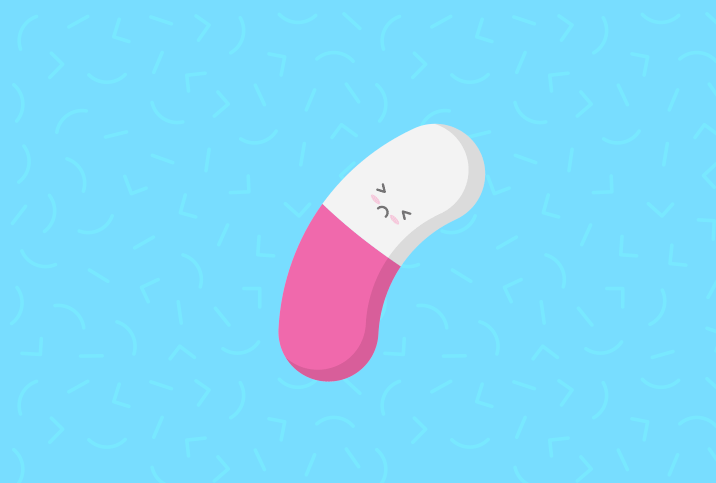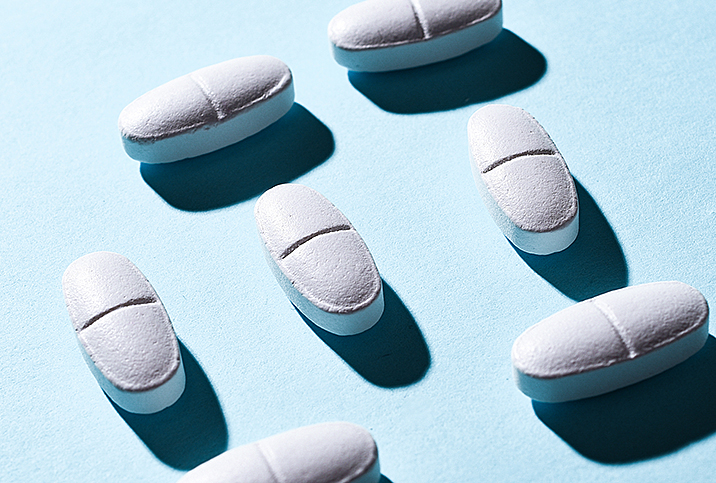Is There a Link Between Blood Thinners and Erectile Dysfunction?

Key Points
- Blood thinners are some of the most commonly prescribed medications in the United States.
- While blood thinners don't cause erectile dysfunction, the two are indirectly linked.
- Blood thinners are used to treat conditions such as heart disease, which is often a comorbidity of ED.
Some online information indicates a link between anticoagulants, or blood thinners, and erectile dysfunction (ED). What's the connection?
How do these drugs affect sexual health, and how might taking blood thinners affect any ED treatments you're currently taking? Find out below.
What are blood thinners?
Some Americans love their prescription meds. As many as 66 percent of Americans take prescription drugs—and four prescriptions for each adult, on average, according to the Health Policy Institute. Some 4.8 billion prescriptions were filled in the United States in 2022.
The topic of ED often comes up in discussions about blood thinners, considering the importance of healthy blood flow to the penis for erections—but what are these drugs used for?
Blood thinners are prescribed to reduce the chances of unwanted blood clots forming inside the body.
While normal clotting is important to seal off wounds or cuts and prevent the loss of more blood, clots can become deadly. If a clot forms in your bloodstream, it can break free and get stuck in a smaller blood vessel, heart, lung or brain, cutting off essential blood flow.
Anticoagulants are a class of drug that helps prevent or reduce coagulation. These medications are common—2 million to 3 million Americans take blood thinners for conditions including the following:
- Heart disease
- Vascular disease
- Coronary artery disease
- Deep vein thrombosis (DVT)
- Lupus
- Previous heart attack
- Previous stroke
- Artificial heart valve
What is the link between blood thinners and erectile dysfunction?
The good news is that, despite both erections and blood thinners being tied to blood flow, the broad consensus is that these drugs do not cause or exacerbate ED in any way.
The other good news is that you're safe to continue taking phosphodiesterase type 5 (PDE5) inhibitors, such as Viagra and Cialis, while on blood thinners. No direct interactions between them have been found.
Now, the bad news: If you have a condition that requires you to take blood thinners, it's likely you're already at risk for ED—not due to the medication, but to the condition itself.
"Blood thinners do not cause erectile dysfunction, and it is safe to take PDE5 inhibitors while on blood thinners," said Scott D. Miller, M.D., medical director at Wellstar Urology in Atlanta. "However, many of the conditions treated with blood thinners, such as cardiovascular disease, can lead to erectile dysfunction."
From a clinical standpoint, the link between cardiovascular disease and ED runs in both directions.
A common comorbidity of cardiovascular disease is ED. Also, a broad array of studies has suggested that the symptoms of ED are frequently an early sign of cardiovascular disease, a 2020 review shared.
Healthcare providers should counsel men presenting with ED about this link and talk about getting screened for heart issues, according to American Urological Association (AUA) guidelines.
"A lot of the time, we're on blood thinners for things like coronary artery disease or vascular disease, and absolutely that is bang-on one of the causes of ED—in fact, the most common," said Katherine Rotker, M.D., a urologist with Yale Medicine in New Haven, Connecticut, who specializes in male infertility and reproductive health.
"So the comorbidities that put you on blood thinners very well could be contributory or partially causative to ED."
Recommended
- How to Manage Your High Blood Pressure and ED: Approaching each condition separately can help.
- What Conditions Impact Blood Circulation and Erectile Dysfunction?: Diabetes and hypertension, for example, can cause clogged arteries and ED.
- High Blood Pressure Drugs and ED: What You Should Know: Treating your hypertension can often worsen your ED. Fortunately, you have options.
How do second-line ED treatments potentially cause problems?
PDE5 inhibitors are considered safe to take while on blood thinners, but other ED treatments may pose a different set of complications. That's because people on blood thinners have a tendency to, well, bleed more.
This includes the kind of "bleeding" underneath the skin that occurs when blood pools in response to trauma—in other words, bruising.
"When you start getting to the additional treatments for ED, blood thinners come up a lot," Rotker said. "So the classic treatments are going to be intracavernosal injections or Trimix, and that has a relative but not absolute contraindication if you're on a blood thinner."
Rotker is referring to the fact that anytime a person on blood thinners gets needle injections, there's a higher likelihood of bruising. As long as you're prepared for the possibility of bruising on your penis, you can still use this method of ED treatment if you want to.
"I have plenty of patients who are on blood thinners and still do intracavernosal injection therapy," Rotker said. "It's just a higher risk that if you did hit a vein and you got a bruise, it'd be more dramatic."
Similar considerations come into play for men who use a vacuum pump with a constriction band or even just a penis ring. These devices depend on pulling extra blood into the penis, and the pressure combined with the medication may cause bruising.
"So, again, not an absolute contraindication, but a relative contraindication because that restriction band can cause more bruising for someone who has a blood thinner on board," Rotker said.
If you were considering a surgical procedure such as a penile implant or prosthesis, there would need to be consultations between your cardiologist and urologist, because blood thinners are typically paused before surgery, and they would need to agree that it is safe to do so in your case.
The bottom line
Blood thinners are a lifesaving treatment for millions of people. They can cause some minor discomfort or irritation in the sexual health arena for some men, but for the most part, they're not going to get in your way too much.
If you're on blood thinners and experiencing ED, talk to your doctor about possible underlying causes—including the condition that got you on blood thinners in the first place. Ask about the treatments that might be appropriate for you, because plenty are available.


















